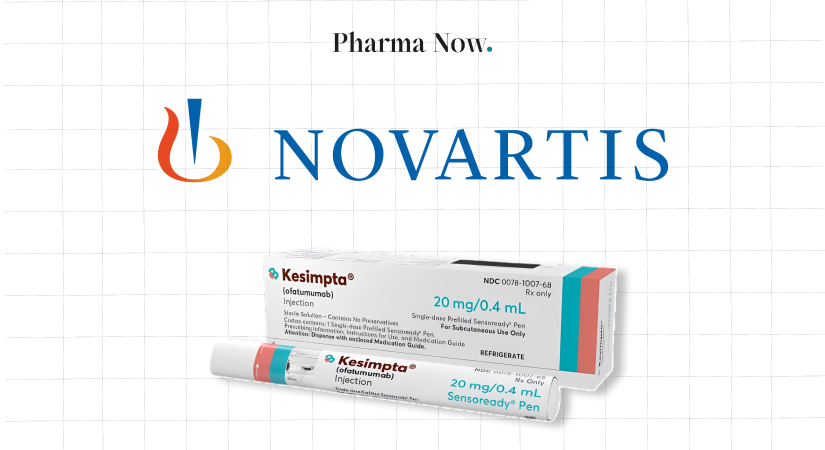Kesimpta® Studies Show Over 90% Of RMS Patients Achieve NEDA-3 With Long-Term Treatment, Novartis Reports
Novartis data show long-term efficacy and safety of Kesimpta in relapsing multiple sclerosis, presented at ECTRIMS 2025.
Breaking News
Sep 25, 2025
Vaibhavi M.

Novartis announced new findings from two clinical studies of Kesimpta® (ofatumumab) in relapsing multiple sclerosis (RMS), set to be presented at the European Committee for Treatment and Research in Multiple Sclerosis (ECTRIMS) 2025 Annual Meeting in Barcelona from September 24–26. The data reinforce Kesimpta’s long-term efficacy and safety profile in both previously treated and newly diagnosed patients.
Lead investigator Dr. Riley Bove of the University of California, San Francisco, stated, "These findings add to the growing evidence on the efficacy and safety of ofatumumab after a switch from oral DMTs. Crucially, we observed robust disease control sustained over two years in patients with RMS who did not respond well to oral DMTs.”
Results from the Phase IIIb ARTIOS study revealed that RMS patients who switched to Kesimpta after experiencing breakthrough disease on fingolimod or fumarate-based therapies showed a marked reduction in disease activity. Over 96 weeks, participants achieved a low annualized relapse rate (ARR) of 0.06, nearly complete MRI activity suppression, and more than 90% reached no evidence of disease activity (NEDA-3). Importantly, no new safety concerns were identified, regardless of prior treatment.
“The long-term data from these studies underscore Kesimpta’s ability to deliver sustained efficacy and a consistent safety profile for people with RMS,” said Norman Putzki, M.D., Ph.D., Global Head Development, Neuroscience & Gene Therapy, Novartis. “These findings reinforce Kesimpta’s position as a therapy that empowers patients to take early control of their disease.”
The ALITHIOS open-label extension trial provided long-term evidence in treatment-naïve patients diagnosed within three years. More than 90% of participants achieved NEDA-3 at seven years while maintaining low relapse rates and strong MRI suppression. The safety profile remained favorable, with no emerging concerns over prolonged treatment. These results further position Kesimpta as a robust, durable option for managing RMS across different patient groups.
